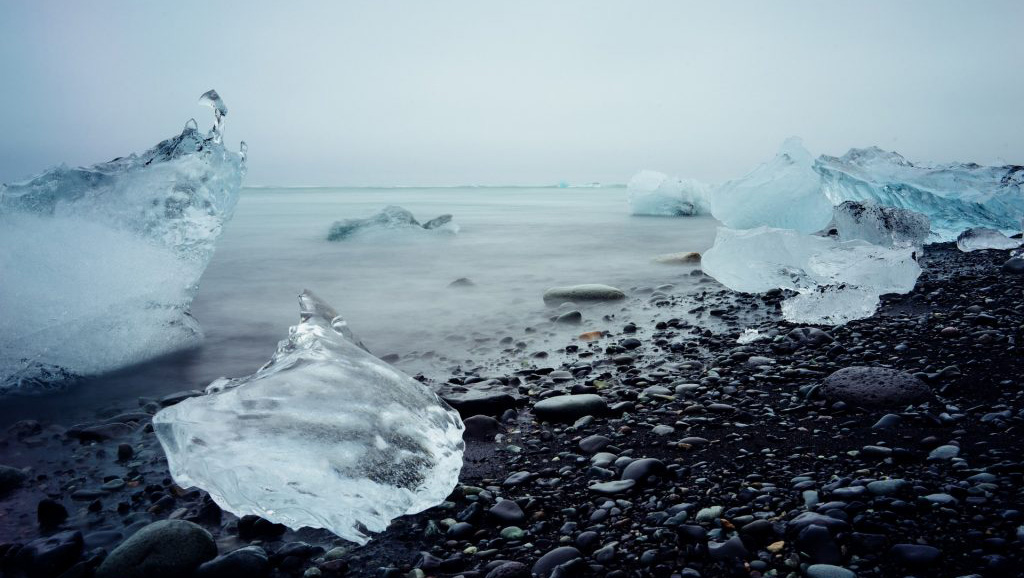
From grassroots to global: the evolution of the UMaine Arctic initiative
UMaine Arctic began as a movement to connect researchers on campus who were interested in the region. Today, the initiative is one of the most interdisciplinary projects on campus, with membership spanning across 20 different departments and schools.
The idea for UMaine Arctic spurred from a program that was launched at the University of New Hampshire and funded through a planning grant from the National Science Foundation (NSF). The result was the New England Arctic Network (NEAN), which UMaine researchers joined.
“At the time, UMaine did not have an umbrella initiative that covered Arctic research. Jason Charland, director of the Office of Research Development along with Chris Gerbi, professor at the School of Earth and Climate Sciences and associate dean for research in the College of Natural Sciences, Forestry, and Agriculture created a place where researchers from across campus could come together. The effort received early support from our office,” says Kody Varahramyan, the Vice President for Research and Dean of the Graduate School
“We looked around campus, and we know that we have so many strengths. We have the Climate Change Institute; we have the School of Earth and Climate Sciences and the School of Marine Sciences; our forestry folks were doing remote sensing. So the initiative really was put into place to create some sort of umbrella where we could all start to talk together, but not be in any one department. I think that’s the beauty of the network,” says Charland.
The Arctic is a unique place with great importance to humans. It plays a vital role in regulating the Earth’s climate and is a place of deep cultural and ecological significance. It has also increasingly become a region of economic and strategic advantage. “We know that the federal funders are really interested in the Arctic. The NSF has a whole new initiative called Navigating the New Arctic. We’ve known that the Department of Defense has been interested, for a number of reasons, in what’s happening with changes in the Arctic,” explains Charland.
In the Summer of 2018, faculty members that had interests in the Arctic gave brief presentations to introduce themselves and their work to everyone else. Following the success of these meetings and continued interest in an Arctic research group, Kristin Schild was named the coordinator of UMaine Arctic.
She, and others in the initiative, support grant writing, networking, and host a speaker series providing a platform for researchers to share their findings and interests with the community.
“The UMaine Arctic Initiative got its start as a grassroots group: ‘let’s start a seminar series once a month’ to bring people together and get people talking on campus. From there, researchers began to connect and realize that we actually have people on campus, within our own university, and the university system, who fill exactly the void in our individual projects,” says Schild.
As one of the most interdisciplinary initiatives on campus, with a sprawling membership, Arctic research from UMaine attacks problems from a variety of angles and viewpoints. Researchers look at how climate change is affecting icebergs, ocean salinity levels, species impacted by melting ice, and much more.
“I think one of the cool things is that the Arctic sounds like it’s so far away, and in some respects it is. But there are changes that are happening in the Arctic that are impacting the state of Maine and the Gulf of Maine specifically,” says Charland.
Gerbi points out that Maine’s economy, natural resources, and culture have strong ties to the Arctic region. “To pick one economic example, our fisheries result in part from the cold Labrador Current that streams down between Greenland and Canada, then hugs the coast into the Gulf of Maine. On a longer timescale, our landscape is the product of the ice sheets that flowed from the Hudson Bay region. The earliest inhabitants of what is now Maine occupied a landscape recently deglaciated and similar to what is now at higher latitudes.”
Mainers have strong historical ties to people who moved south from Canada, and they brought with them traditions from the north. “So, although Maine is not technically an Arctic state by latitude, our identity has strong ties to the Arctic region,” says Gerbi.
By creating UMaine Arctic, the university has brought together people working across campus and provided a platform for communication, finding synergy, and expanding interdisciplinary impact. Gerbi reflects on its progress. “UMaine Arctic was not cut out of whole cloth, but rather is possible because of the strong history and current engagement of UMaine faculty, staff, and students in high latitude research, education, and outreach: from the changing climate to glacier mechanics, lake ecology, environmental health, the carbon cycle, oceanography, fisheries, and transportation. Work in these areas also has a direct benefit to the state, consistent with our land- and sea-grant missions.”
Throughout the COVID-19 pandemic, Schild continued to host their monthly speaker series, held virtually. This coming year the UMaine Arctic initiative will continue its valuable work, bringing together researchers across campus, supporting innovative interdisciplinary research, hosting events, and further expanding engagement through regional conferences.
Contact: research@maine.edu
Written by Ali Tobey
